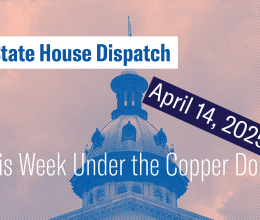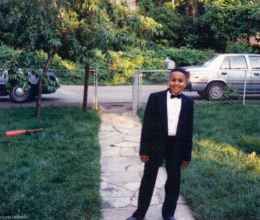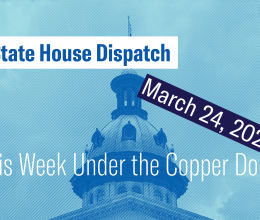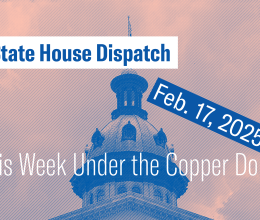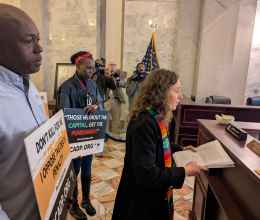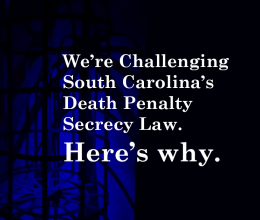The American Civil Liberties Union filed a federal lawsuit challenging South Carolina’s “disturbing schools” law. The law allows students in school to be criminally charged for normal adolescent behaviors including loitering, cursing, or undefined “obnoxious” actions on school grounds. The ACLU is also challenging a similarly vague “disorderly conduct” law, which prohibits students from conducting themselves in a “disorderly or boisterous manner.” The statutes violate due process protections of the Constitution.
The ACLU found that hundreds of students — some as young as 7 years old — are being charged under a far-reaching and nebulous “disturbing schools” law for behaviors such as loitering, cursing, or undefined “obnoxious” actions on school grounds. The statute also has a chilling effect on students who speak out against policing abuses in schools. Black girls and boys are nearly four times as likely to be targeted under the law.
Plaintiff Niya Kenny, 19, is a former student at Spring Valley High School in Columbia. As a student last October, she witnessed a violent, headline-grabbing altercation in her classroom when a school resource officer flipped a classmate over in her desk and dragged her across the room. Kenny, who is African-American, spoke up against the officer’s actions. She was arrested and hauled off to a detention center.
Other plaintiffs include:
- Taurean NeSmith, 21, an African-American student at Benedict College in Columbia, was arrested because he criticized a police officer for racial profiling during the stop of a fellow student.
- S.P., 15, a white student with behavioral and emotional disabilities at Travelers Rest High School in Greenville, was charged with a crime after failing to comply with instructions to leave the school library and cursing at a student who was making fun of her.
- D.S., 17, an African-American student at Stall High School in Charleston, who has learning disabilities and a heart condition, was charged with disturbing schools after a minor physical altercation. In the adult criminal justice system, she faced possible detention for her inability to pay fines and fees.
- Girls Rock Charleston, a nonprofit organization that provides mentorship, music and arts education, and leadership development to young people in Charleston. Girls Rock operates an afterschool program serving at-risk youth and youth who have been involved in the criminal justice system.
The ACLU is challenging the statutes on grounds they violate the U.S. Constitution’s due process protections. The complaint, Kenny v. Wilson, was filed in the U.S. District Court of South Carolina.

